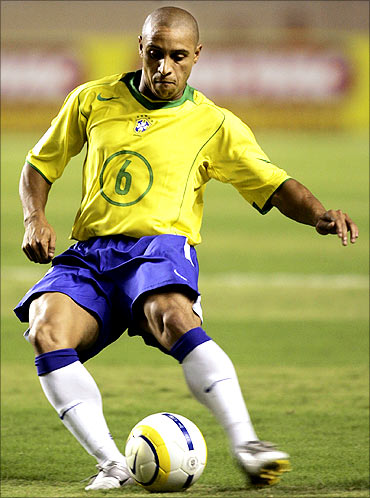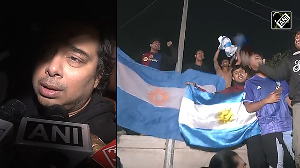 French scientists claim to have finally revealed the secret behind the "best free kick" ever in international football by Brazil's Roberto Carlos against France in 1997.
French scientists claim to have finally revealed the secret behind the "best free kick" ever in international football by Brazil's Roberto Carlos against France in 1997.
Carlos' free kick from 115ft in the Tournai de France, which seemingly headed for the corner flag but suddenly curved like a banana to land in the net, has been written off by many as only an incredible lucky chance. Even the French goalkeeper Fabien Barthez made no move thinking it would go safely clear.
Now, a team at École Polytechnique has said that the "most incredible goal" in international football was no fluke, after it worked out the science of the seemingly impossible free kick, The Daily Telegraph reported.
Using tiny plastic balls and a slingshot, the team from the École Polytechnique near Paris varied the velocity and spin of balls travelling through water to trace different trajectories.
While their research quickly confirmed the long known Magnus effect, which gives a spinning ball a curved trajectory, it revealed fresh insight for spinning balls that are shot over a distance equivalent to free kick.
The friction exerted on a ball by its surrounding atmosphere slows it down enough for the spin to take on a greater role in directing the ball's trajectory, thereby allowing the last moment change in direction, which in the case of Carlos' kick left Barthez defenceless.
The scientists refer to their discovery as the "spinning ball spiral", comparing the spiralling effects of Carlos's kick with the shorter distance (80ft) "circular" free kicks shot by the likes of David Beckham and Michel Platini.
Team members Christophe Clanet and David Quéré said: "When shot from a large enough distance, and with enough power to keep an appreciable velocity as approaching the goal, the ball can have an unexpected trajectory.
"Carlos' kick started with a classical circular trajectory but suddenly bent in a spectacular way and came back to the goal, although it looked out of the target a small moment earlier.
"People often noticed that Carlos' free kick had been shot from a remarkably long distance, we show in our paper that this is not a coincidence, but a necessary condition for generating a spiral trajectory."
The findings have been published in the New Journal of Physics.






